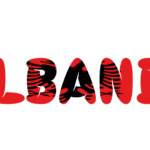
The government increased efforts to prevent trafficking. The government adopted the 2018-2020 national action plan. Observers reported ONAC coordinated anti-trafficking efforts but faced internal and external challenges.
The government maintained a multi-disciplinary working group and a separate task force to develop and monitor anti-trafficking policies. Twelve regional anti-trafficking committees comprising local officials and NGOs worked on prevention and victim assistance. ONAC had not published regular activity reports on its website since 2017 but held four meetings with stakeholders involved in the NRM.
Observers reported prosecutors rarely attended NRM meetings. ONAC, in cooperation with civil society, conducted awareness campaigns for students, teachers, and the general public. ONAC also conducted informational meetings with representatives from the Romani and Balkan Egyptian communities.
The government did not make efforts to regulate or punish labor recruiters for illegal practices that increase migrants’ vulnerability to exploitation abroad. Labor inspectors did not have authority to inspect informal work activities, including unregistered businesses. The State Police Directorate’s hotline received three trafficking-related calls, which were referred to the appropriate authorities. The government did not take steps to reduce demand for commercial sex or forced labor.
Adapted from TIP 2019 by the U.S. Department of State

